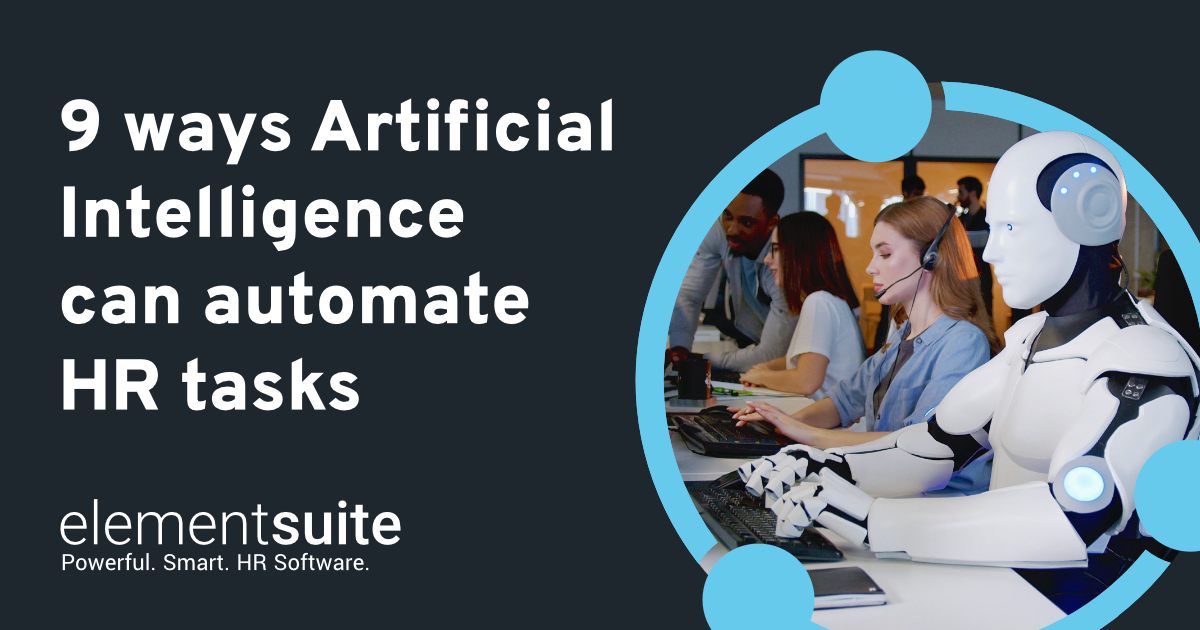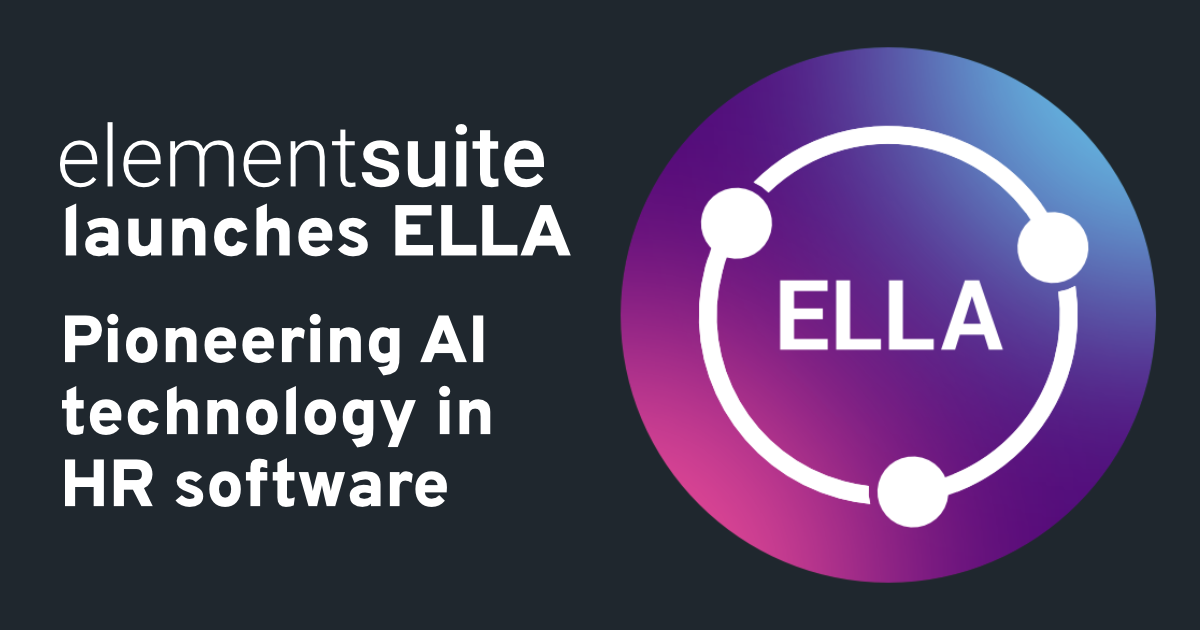Here at elementsuite, we love all things AI – especially when it comes to the potential it holds for HR professionals.
Traditionally seen as an administrative function focused on compliance and payroll, over the years, HR has evolved into a strategic partner that drives business outcomes through human capital strategies – and technology, including AI, has played a significant role in this transformation.
According to research by McKinsey, 50% of the organisations surveyed have already implemented AI in their operations – a significant rise from the adoption rates in 2017. And with IDC predicting the growth of digital spending in the EMEA region to be four times the rate of GDP in 2024, it’s clear that AI will be a major player in the workforce of the future.
But what does this mean for HR professionals? Are they at risk of losing their jobs to AI?
The simple answer is a resounding NO.
While AI may augment human capabilities such as payroll and administrative tasks, it is not going to replace the need for human HR professionals. In fact, it actually presents an opportunity for HR professionals to expand their skills and become even more valuable strategic partners within the organisation.
So, how can HR professionals adapt and thrive in the age of AI? By upskilling in areas such as change management, strategic thinking, data literacy, ethical considerations and bias mitigation, emotional intelligence, marketing communication skills, and collaboration.
Let’s look at each of these skills in more detail:
Change Management
The introduction of AI in the workplace brings significant changes, and with it comes the need for effective change management.
HR professionals have a crucial role to play in helping employees adapt to new technologies and workflows. They must ensure that the transition is smooth, with minimal negative impact on employee morale and productivity, and that everyone understands the benefits and purpose of the changes being made.
This requires skills in change management, including understanding human behaviour and resistance to change, communication, and stakeholder management. Without these skills, implementing AI in the organisation’s processes and operations will prove difficult, if not impossible.
Strategic Thinking
Over the years, we have already seen HR evolve into a pivotal business strategic partner. But now, with AI data-driven insights at the tip of our fingers, HR professionals can (and must) further elevate their strategic thinking abilities.
This involves upskilling themselves with the business acumen to understand the broader business goals, aligning HR strategies with these objectives, and using data-backed insights to drive talent management decisions. In short, AI can help make HR professionals smarter and more strategic in their roles.
Data Literacy
Building on the previous point, despite all the impactful insights that AI can generate, it’s all for nought if HR leaders and professionals can not understand and use their HR data.
Data literacy is now a crucial skill HR professionals must have to utilise AI to its full potential. And while not everyone needs to be an expert in data analysis or coding, having a basic understanding of how to interpret and use data to tell engaging stories will be essential.
Ethical Considerations and Bias Mitigation
As with any technology, AI also has its limitations – one of which is the potential for bias in algorithms. And as HR professionals in the digital age, we are responsible for ensuring that AI applications are used ethically and without discrimination.
To do so, we must first understand the ethical implications of AI and equip ourselves with the knowledge and skills to identify and mitigate potential biases. This eludes back to the previous point on understanding how data is collected, analysed, and used in AI algorithms, as well as implementing systems and processes to ensure fairness and inclusivity in the workplace.
Emotional Intelligence
In the age of AI, where technology is taking over more procedural tasks, HR has the opportunity to focus more on enhancing employee experiences. This is where emotional intelligence (EQ) helps HR professionals manage workforce dynamics, promote a positive workplace culture, and foster better employee relationships – all of which contribute to happier, more productive employees.
The future of HR is human, and EQ is a crucial skill that HR professionals must develop to stay relevant and competitive in the age of AI.
Communication Skills
Effective communication is key, especially when it comes to explaining complex AI concepts and their implications to non-technical staff. How else are you going to enhance employee AI adoption, if they don’t understand what you’re saying?
This is where learning communication skills from our marketing colleagues can come in handy.
Marketing and communication teams are known for their ability to simplify and convey complex information in a clear, concise, and engaging manner. So why not learn from them?
With HR holding the responsibility of HR tech implementation and adoption, having strong communication skills is a must-have to ensure everyone is on the same page. Not only that, this crucial skill will also help in effectively communicating the company’s culture, values, and goals – all of which are crucial for successfully implementing AI in the workplace.
Collaboration Skills
Finally, as AI continues to integrate into our workplaces and the HR profession evolves further into business operations – collaboration skills will be essential for HR professionals.
For instance, if we focus on ethics and bias, collaborating with diverse teams is a must, as we need to work closely with AI experts, data scientists, and other departments to successfully (and safely) integrate AI solutions into HR processes. Therefore, HR professionals must have strong collaboration skills, including active listening, problem-solving, and conflict resolution.
Conclusion
With the rise of AI in the corporate world, there is no denying that the HR profession is and will continue to change significantly. But it’s important to remember that change does not always mean something negative or challenging. In fact, it can bring about new opportunities for growth, learning, and development.
HR professionals must embrace these changes and see them as an opportunity to upskill themselves in areas that will make their roles more impactful than ever before. By focusing on skills such as emotional intelligence, strategic thinking, change management, data literacy, ethical considerations and bias mitigation, marketing and communication skills, and collaboration – HR can continue to thrive in the age of AI.
So, let us not fear AI but instead see it as a valuable tool that can make HR professionals smarter, more strategic, and ultimately more successful in driving human capital strategies for business success.




